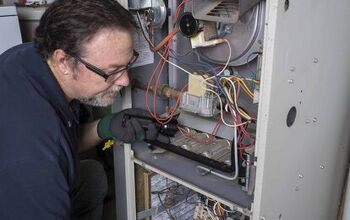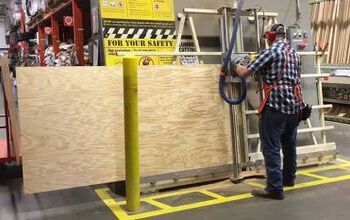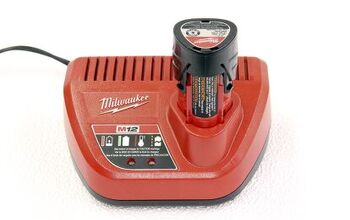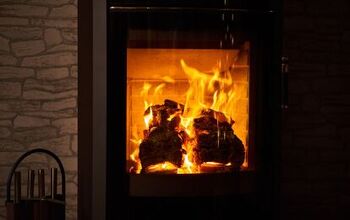Can You Wash Dishes In Non-Potable Water? (Find Out Now!)

Ingesting non-potable water shouldn’t seem like a major problem in well-developed countries like the United States. But in 2017, the Center for Disease Control (CDC) reported close to 500,000 hospitalizations and 7,000 deaths from waterborne diseases.
These numbers confirm that we shouldn’t drink it, but can we wash dishes in non-potable water?
Non-potable water should not be used to wash or rinse dishes, containers, utensils, food, or surfaces in which comes into contact. If not properly dried, dishes made of plastic or other porous materials hold onto bacteria found in non-potable water.
It’s safe to wash ceramic dishes and metal utensils in non-potable water. However, they must be completely dried before use.
What is Non-Potable Water?
Potable water is fit and acceptable for human consumption. Therefore, we can assume non-potable water is just the opposite.
Non-potable water refers to untested or untreated water. This includes rainwater, groundwater, or surface water, such as lakes or rivers. It’s important to get these water sources tested before consumption.
Why Non-Potable Water is Dangerous
If it’s untreated or untested, you have no way of knowing if harmful bacteria or chemicals live in the water. Some water sources have a higher mineral content which makes them unsafe for human consumption. Some are even more dangerous with viruses or bacteria growing in them. The latter can be deadly if ingested.
In the case of water with high mineral content, you could simply filter the water and boil it. This would make it safe for human consumption. But without knowing how contaminated the water source is, avoiding non-potable water is best.
In developing countries, the water is often non-potable. While the locals have gotten used to what’s in their water, you should always take precautions when traveling to another country.
Common Pollutants in Tap Water
There is a slew of pollutants commonly found in tap water alone. The level of contamination depends on each water source. Presumably, the city tests your residential water regularly, but you may want to send it for testing yourself on occasion.
Contaminants are natural or man-made chemicals that infiltrate into our water. Some come ones include:
- Arsenic. This makes its way into our water through industrial and agricultural pollution. Boiling water will not remove arsenic. In addition to cancer, arsenic ingestion is linked to many health problems.
- Copper. Often found in the water of prominent mining areas, copper is also present in water coming from corroded copper pipes. Copper ingestion causes stomach problems, such as diarrhea or vomiting as well as liver and kidney damage.
- Lead. If your plumbing system contains lead, the chemical gets into the water if the pipes corrode. You cannot see, smell, or taste lead. Some common reactions to lead ingestion include brain damage, cancer, and birth defects.
- Nitrates. Similar to arsenic, you cannot remove nitrates out of the water by boiling or through chlorination. They are found in improperly built private well water as well as water exposed to human or animal fecal matter.
One-celled organisms, called protozoan parasites, reproduce quickly if ingested and often live in animals or insects. There are many different types, but their effects usually include fever, dehydration, and other gastrointestinal problems.
Bacteria are smaller than protozoans and usually make their way into water through animals. Common bacteria found in water include cholera, dysentery, and typhoid.
Viruses are smaller still and can easily make it past a filter. There are no known treatments for waterborne viral infections.
Washing Dishes in Non-Potable Water
As you can see, it would be incredibly dangerous to ingest water with any of the above mentioned pollutants. Non-potable water is at risk for any of these pollutants and more.
Even washing your dishes in non-potable water is dangerous. If not dried properly, bacteria remain on the surface of porous materials like plastic, clay, and wood—common materials found in dishes. The next time you use a plastic dish washed in non-potable water, the bacteria will get on your food and into your body.
The Exception to the Rule
Dishes and utensils made from non-porous materials, such as ceramic or metal may be washed in non-potable water. However, you must dry them completely before use. Any residual moisture aids the growth of bacteria.
The best drying method is placing the items in direct sunlight. When humidity levels are 10% or less, viruses and bacteria cannot thrive.
Non-Potable Water In and Around Food
In addition to washing dishes, do not wash or cook food in non-potable water. Do not clean any surfaces with non-potable in which food comes into contact. Finally, use non-potable water to prepare a drink.
Related Questions
What can non-potable water be used for?
You can safely clean surfaces that don’t come into contact with food (like floors) with non-potable water. Flushing toilets with non-potable water is also safe as is doing your laundry. Hang the clothes to dry for the best sanitation results. Lastly, it’s possible to water your garden with non-potable water. If you’re growing herbs or vegetables, keep the water from getting in contact with the edible part of the plant.
Can you use non-potable water to brush your teeth?
It’s unsafe to brush your teeth with non-potable water. Even if you don’t swallow any water, bacteria still get in your mouth and may travel to other parts of your body.
Is it OK to shower in non-potable water?
Any form of personal hygiene is unsafe with non-potable water. This includes showering, bathing, and washing your hands. When bathing or showering, water is likely to get into your eyes, mouth, or other orifices which introduces the bacteria into your body.Similarly, bacteria clings to your hands when you wash with non-potable water. We touch our face so often that the bacteria is likely to get into our eyes or mouth which are two major entry-points for bacteria.
Summary
Non-potable water is not safe for human consumption. It often has bacteria or other contaminants that are dangerous if ingested. Bacteria survive on porous materials, like many used in dishes. Unless they’re made of ceramic or metal, you risk ingesting bacteria if you wash dishes in non-potable water.

Brigid Levi is a wife, mother, and freelance writer who enjoys a good DIY project and creating beautiful spaces within her home. From cleaning and organization hacks to home decor ideas, she loves helping people in their quest to turn a house into a home. Her hobbies include pretending to be Joanna Gaines while updating her home with her husband and performing in local theater productions.
More by Brigid Levi



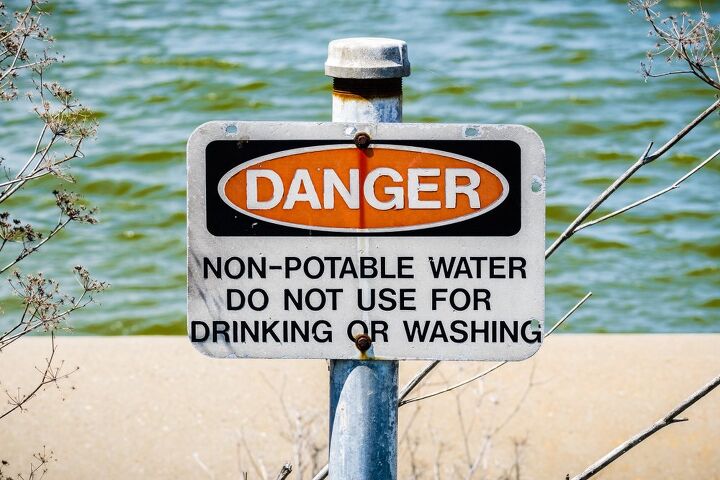






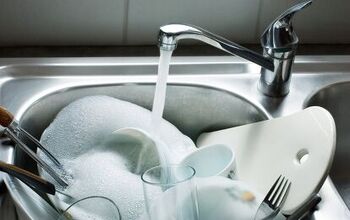

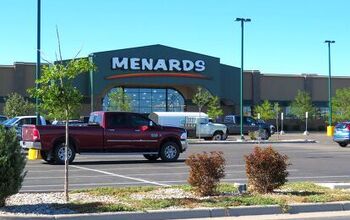





![Standard Dining Room Table Dimensions [for 4, 6, 8, 10 and 12 People]](https://cdn-fastly.upgradedhome.com/media/2023/07/31/9074335/standard-dining-room-table-dimensions-for-4-6-8-10-and-12-people.jpg?size=350x220)

